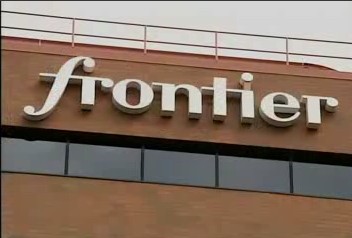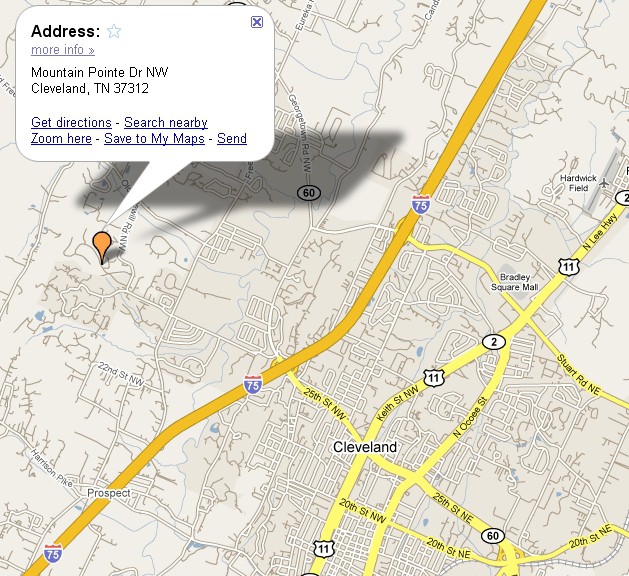
NY State Attorney General Andrew Cuomo
The New York State Attorney General has slapped Frontier Communications with a $35,000 fine and ordered the phone company to refund up to $50,000 it wrongfully charged consumers in so-called “early termination fees” for telephone and broadband service — fees consumers were never properly informed about at the time they ordered service.
“Frontier failed to spell out in its contracts the existence of costly fees,” said Attorney General Andrew M. Cuomo. “The company is now fixing the issue by providing written notices of these fees and paying back consumers who were wrongfully charged.”
Frontier, located on South Clinton Avenue in Rochester, provides high speed broadband Internet service (FrontierHSI) and local and long distance telephone service. Between January 2007 and September 2008, Frontier sold bundles of various services under one-, two- or three-year agreements known as Price Protection Plans that offered a lower rate than month-to-month service as well as a promise that the subscription rate would not increase during the term of the plan. However, Frontier charged early termination fees to consumers who terminated a service before the end of the term. These fees typically ranged between $50 and $400, depending on the contents and services included in the package.
The Attorney General’s investigation determined that consumers who purchased one-year bundle agreements were never provided with written notice of the term or the existence of an early termination fee. The investigation also uncovered that consumers were not notified in their monthly billing statement that their agreements contained early termination fees. Therefore, many consumers first learned about the fee only after they canceled their service with Frontier and the charge appeared on their final bill.
In at least one instance, Frontier automatically re-enrolled a consumer to a term commitment after the initial term expired and then charged an early termination fee when she canceled after the initial term.
This is not the first time Frontier’s promotions have faced scrutiny by a New York Attorney General. In March 2006, Frontier agreed to pay $80,000 in penalties and around $300,000 in customer refunds for what former Attorney General Eliot Spitzer called “misleading advertising and marketing tactics.”
Frontier’s customer service centers have often provided uneven service to consumers calling for information about products and services. Stop the Cap!‘s editor, yours truly, had a number of problems when sampling Frontier’s DSL service during the Time Warner Cable Internet Overcharging experiment. In addition to inconsistent product information, pricing, and terms and conditions, customer service representatives were ill-equipped to properly describe their own lineup of products, at one point promoting their wireless wi-fi network service in Rochester as “wee-fee.”
After the company couldn’t provide DSL service to my residence at speeds better than 3.1Mbps, service cancellation did not result in an early termination fee, but did cause serious billing foul-ups that took multiple calls to sort out.
In 2008, Stop the Cap! helped many customers cancel their DSL service without incurring early termination fees when the company introduced a 5GB usage limitation in their Acceptable Use Policy, under the provision allowing customers to opt-out of materially adverse changes in their service. The company later announced customers under their Price Protection Agreement would not be subject to any service limitations until those agreements expired.
In January 2009, Attorney General Cuomo’s Office began investigating Frontier Communications and its subsidiaries after receiving dozens of complaints from consumers who were unexpectedly charged early termination fees.
Through an agreement with Attorney General Cuomo’s Office, Frontier must pay up to $50,000 in refunds and credits of early termination fees paid by eligible consumers who filed complaints prior to December 31, 2008. The company has provided the Attorney General’s Office a list of those eligible for refunds or credits.

Frontier's headquarters in Rochester, N.Y.
Other consumers who believe they are eligible for a refund or credit may submit a claim to the Attorney General’s Office by December 21, which will review the claims and act as the final arbiter for eligibility for reimbursement. Consumers wishing to file a complaint should call the Attorney General’s Rochester Regional Office at (585) 327-3240. A promised web-based claim form could not be located on the NY Attorney General’s website at press time. Residents living outside of New York State are not eligible to participate, but you may want to contact your own state’s Attorney General and ask them to review the New York settlement agreement, which could provide the basis for similar settlements in other states.
Frontier must also pay $35,000 in fees and costs. Frontier will send written notices to all customers who subscribe to new services regarding early termination fees. The company will not collect any such fee until after the notice has been sent. Frontier must also include a written notice of the term of any service agreement on consumers’ monthly billing statement for any agreement with an early termination fee.
Many customers never realized Frontier automatically renewed their Price Protection Agreements without their explicit consent, generating early termination fees of $300 for some customers who left after more than five years of service with the company.
JuniPerez, a former Frontier customer, wondered whether Frontier was offering a Price Protection Lifetime Agreement: “I had Frontier’s DSL and phone service for about five to six years (phone service for much longer). After my last move, I switched to Time Warner’s phone, cable, and broadband package. Within two weeks of notifying Frontier of my service cancellation, they sent me my last bill — $300.00! This was for what they called an “Early Termination Fee”. After five to six years I had an early termination fee? I didn’t even get a chance to dispute it. Within days (not weeks or months) they turned the account over to a collection agency. They still dare to send me ‘come back to us’ flyers and specials.”
Some Frontier customers sign up for bundled packages of service to receive incentives, such as heavily discounted satellite television service or a “free” Dell netbook (after paying $45 in fees for taxes and shipping), in return for signing a two- or three-year Price Protection Agreement. The agreement promises customers will not see any changes in pricing for the length of the agreement. At the same time, the agreement “locks-in” the customer to stay with the company for the length of the contract, or face a penalty for canceling service early. In many cases involving incentives, the early termination fee amounted to $300.
But Frontier appears to have made some changes even before yesterday’s settlement with the Attorney General.
As of at least this past spring, customers signing up for a promotion with a Price Protection Agreement were directed verbally to an e-mail copy of the agreement sent to them, urged to read it, and were required to electronically consent to the terms of the agreement in order to participate in the company’s promotions. Follow-up e-mails were sent to customers who did not complete this process. The contract also included provisions notifying customers that agreements were automatically renewed for an additional term unless the customer notified the company in advance they did not consent to automatic renewal. In fact, customers could cancel the contract renewal almost immediately after electronically consenting to it.
Frontier’s e-mail was sent to the customer’s Frontier e-mail account, which some customers never used and never accessed. For some, the terms amounted to “fine print” that many never read. While the New York Attorney General ultimately found Frontier Communications responsible for failing to adequately notify customers about such fees, Stop the Cap! reminds the public they have a responsibility to carefully read and review the terms and conditions of all service agreements, especially those involving promotional giveaways tied to service commitments like Price Protection Agreements. Many have historically carried steep cancellation penalties as well as automatic renewal provisions designed to keep you from switching providers. Such agreements should be considered only if you are certain you are happy with your service provider. If you are trying a service for the first time, inquire whether you can sample the service for a trial period and retain the right to cancel without incurring penalties. Frontier traditionally offers a 30-day trial period for DSL service. Always record the time and day you made the inquiry, and the name of the customer service representative you spoke with. Should you be given incorrect or inconsistent information, being armed with this information may help convince the provider to agree to what you were promised.
Customers who are not satisfied with the response they receive from a customer service representative or their immediate supervisor should check the front of their telephone directory for the number of the “executive customer service office,” sometimes also called, “unresolved complaints.” These special representatives are empowered to resolve complaints customer service representatives may not have the authority to fix. Failing that, contact your state’s Public Utilities/Service Commission or the Attorney General’s office.
Two video news reports appear below the fold.
… Continue Reading


 Subscribe
Subscribe




